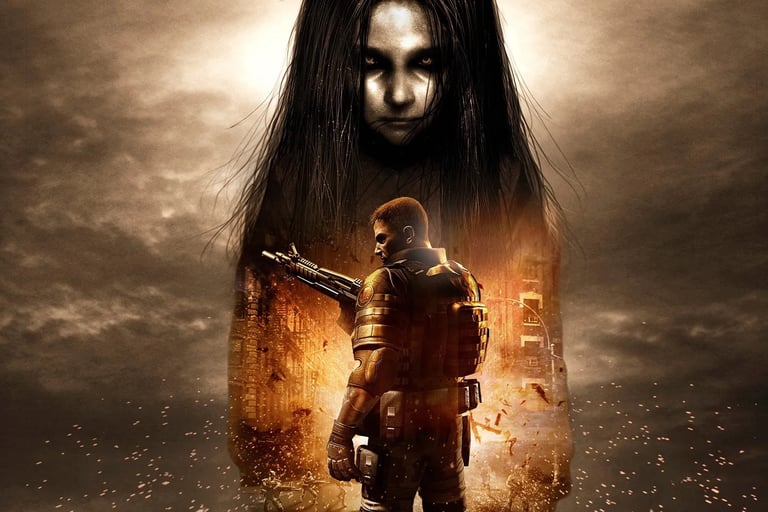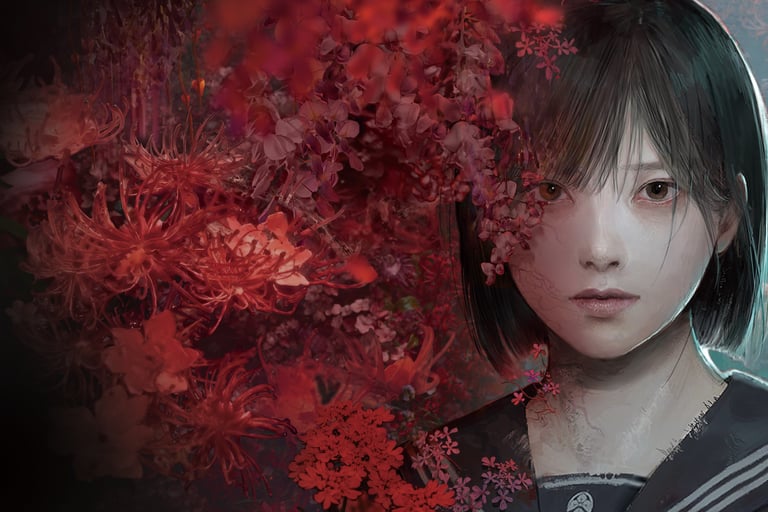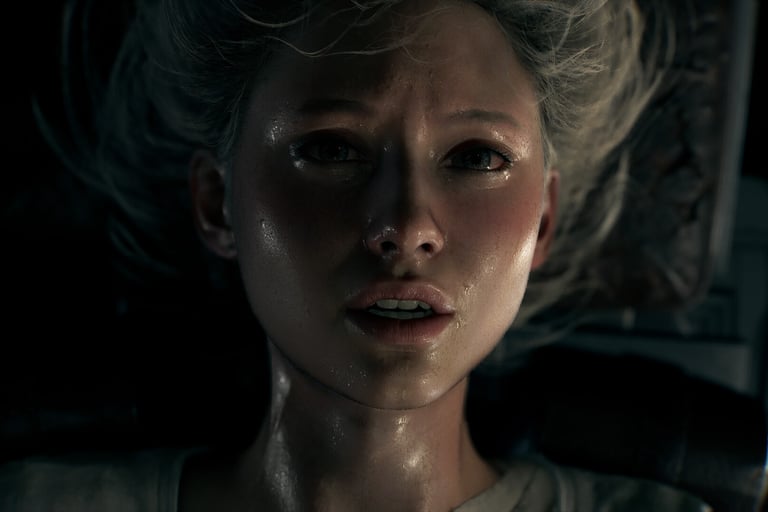Horror in Gaming Exposes This...
EDITIORIALS
Bonafide XP
10/24/20255 min read
The Best Style of Horror in Gaming…
When it comes to horror games, there have been quite a few I've played in the last several years that have really reshaped the way I think about the psychological aspect of the horror genre, and how I approach them. It’s ultimately made me really appreciate the genre in a way I haven’t before… It reshapes your understanding of the human mind, challenging your empathy, and lingers like an unresolved thought. That’s seemingly the promise of psychological horror in video games, a sub-genre that I firmly believe is the direction the entire horror genre should steer towards. Why?
Because in an era where the genre is saturated with jump scares and gore, psychological horror delves into the intangible terrors of the psyche: doubt, trauma, identity, and the fragility of sanity. It transforms passive entertainment into an active mirror for our inner worlds, fostering deeper emotional connections and real-world insights. So in this article, I make the case that psychological horror is the best form of horror in gaming. I’ll draw from a number of games I've played; and I’ll also make the case how this genre addresses the topic of mental illness. Let’s dive in.
Psychological Horror is the Blueprint
The psychological horror genre is a blueprint for horror’s evolution, prioritizing narrative depth, atmospheric immersion, and intellectual engagement over cheap thrills. And ultimately, they point us toward a genre that doesn’t exploit fear but uses it to expose our inner weaknesses. To shine a light on our inner-selves, and show others through immersive gaming. Let’s start by envisioning horror’s current landscape and why a pivot is essential. Traditional horror games often rely on external threats; zombies in Resident Evil, slashers in Dead by Daylight, or cosmic entities in Call of Cthulhu. These deliver adrenaline, sure, but they externalize fear, making it something “out there” to conquer with weapons.
Psychological horror flips the script: the monster is within, born from personal demons, societal pressures, or fractured perceptions. This inward focus makes it more relatable and impactful. It’s not about surviving the apocalypse so much as it’s about surviving yourself. In a world where mental health crises continue to escalate, steering horror toward this sub-genre could turn games into tools for awareness, empathy and healing, not just escapism. Tying an interesting narrative with sophisticated gameplay mechanics, that allows players to confront their anxieties in a controlled space make the experience almost therapeutic.
F.E.A.R 2's Psychic Disturbance
Take F.E.A.R. 2: Project Origin, as a compelling case for this shift. In this game, you play as a special forces operative thrust into a web of psychic disturbances, navigating the physical world amid hallucinatory visions and psionic interferences that distort perception and sanity. The game unravels a mystery tied to corporate experimentation, and repressed traumas to name a few. Combat and exploration require leveraging slow-motion reflexes that symbolize heightened psychic states, mirroring the disorientation and fragmented awareness in real psychological distress. It tackles the use of horror-inspired visuals like spectral apparitions and environmental distortions to depict inner turmoil. This approach makes the point, that interactive storytelling that probes ethical dilemmas and personal histories, rather than relying merely on monsters and gore can deliver an experience of awareness; making it a step toward a genre that educates as much as it terrifies.
Silent Hill's Depth of Fog
Building on that introspective foundation, Silent Hill f exemplifies how psychological horror can innovate while honoring roots, steering the genre toward a culturally resonant narrative. Set in a 1960s Japanese town shrouded in fog, you control Hinako, a schoolgirl confronting parasitic horrors that infest bodies and minds, symbolizing societal pressures on identity, body image, and alienation. The game’s transformations are manifestations of collective trauma, drawing from Japanese history and personal insecurities, where flowers and vines represent decaying self-perception and external judgment. Gameplay blends exploration with tense evasion, but the true terror lies in grotesque encounters and hallucinatory environments that blur reality, forcing players to question Hinako’s sanity amid themes of mental decay. It's a psychological horror that explores severe mental illness, and how your societal surroundings can break the psyche. Silent Hill f leaves a lingering unease, and multiple playthroughs to reveal the many layers, and ultimately the truth about Hinako's story.
Alan Wake's Inescapable Mind Place
Now, consider Alan Wake 2, which masterfully weaves psychological elements into a meta-narrative, showing how horror can evolve into a commentary on creativity and mental fragility. In this story, you have dual protagonists FBI agent Saga Anderson and writer Alan Wake. You navigate overlapping realities where stories shape existence, with Alan trapped in a “Dark Place” of his own making. The horror stems from psychological loops: anxiety-fueled paranoia, where the Mind Place mechanic lets Saga organize clues in a mental hub, reflecting cognitive therapy techniques amid themes of depression and self-doubt. Enemies aren’t just shadows; they’re projections of inner darkness, like Scratch, embodying Alan’s destructive impulses.
The game understands anxiety profoundly, portraying it as an inescapable narrative spiral rather than a defeatable foe, with live-action segments amplifying the disorientation. This intellectual layer, questioning reality and authorship, positions the psychological horror aspect as the genre’s vanguard, blending thriller elements with profound mental health allegories. It outshines traditional horror by making players active in their unraveling, immersing you in the fight out of the spiral.
The Psychosis of Hellblade
No discussion of psychological horror’s trajectory would be complete without the Hellblade series. In Hellblade, you embody Senua, a Pict warrior with psychosis, journeying through Norse mythology-infused realms while battling auditory hallucinations called “the Furies.” The game's audio immerses you in her world: voices whisper doubts, mock failures, and occasionally aid, simulating real psychosis. Combat and puzzles integrate her perceptions, like illusions that alter environments. All developed with input from neuroscientists and those with lived experiences, the series frames the mental illness as a “curse” in its historical setting but ultimately as a human strength, subverting stereotypes.
I found playing Hellblade incredibly immersive putting me in the shoes of Senua, and gaining a profound level of appreciation and understanding of someone who has to go through something like this. It helped enhance my empathy through its narrative. And I think this is the ideal path for such a genre: using interactivity to educate, turning fear into understanding, and something you can conquer.
Psychological Threads
In weaving these threads together, we see how F.E.A.R 2's hallucinatory perceptions, Silent Hill f’s mental decay, Alan Wake 2’s narrative anxieties, and Hellblade’s infusion of doubt converge on a singular truth: psychological horror relates profoundly to mental illness, portraying it not as something villainy but as a shared human experience. These games demystify conditions like psychosis, like depression, and trauma, fostering empathy by letting players experience them through immersive narrative.
By steering horror this way, we heighten awareness. Sure we tell a story, and we entertain. And through story, we open our minds to understanding. Ultimately, they bring us closer to solutions: and with solutions, we can start to normalize mental health conversations, inspiring tools like VR for instance, and moving towards humanizing mental issues to promote more support systems. At least, that is the idea I am driving towards with this video. To look past the gore and the extreme moments and look at these experiences as learning moments that tell a story and entertain. Moments of understanding in someone's shoes, or a moment of self reflection to help you conquer your own fears. Maybe you will find a new sense of appreciate for these kinds of games as I have.







